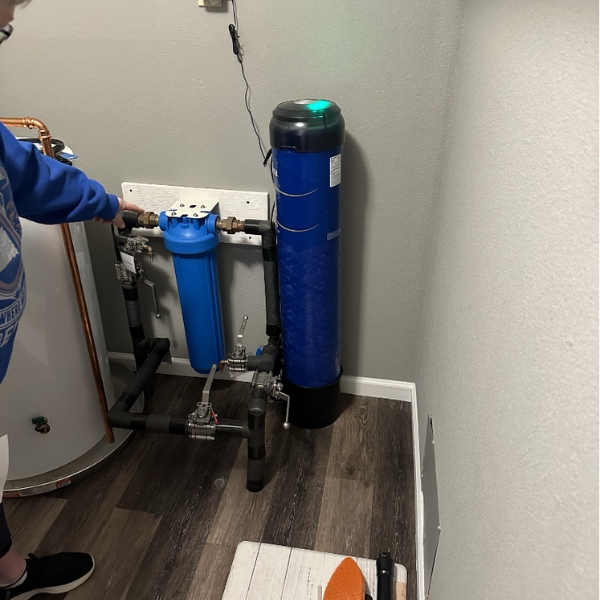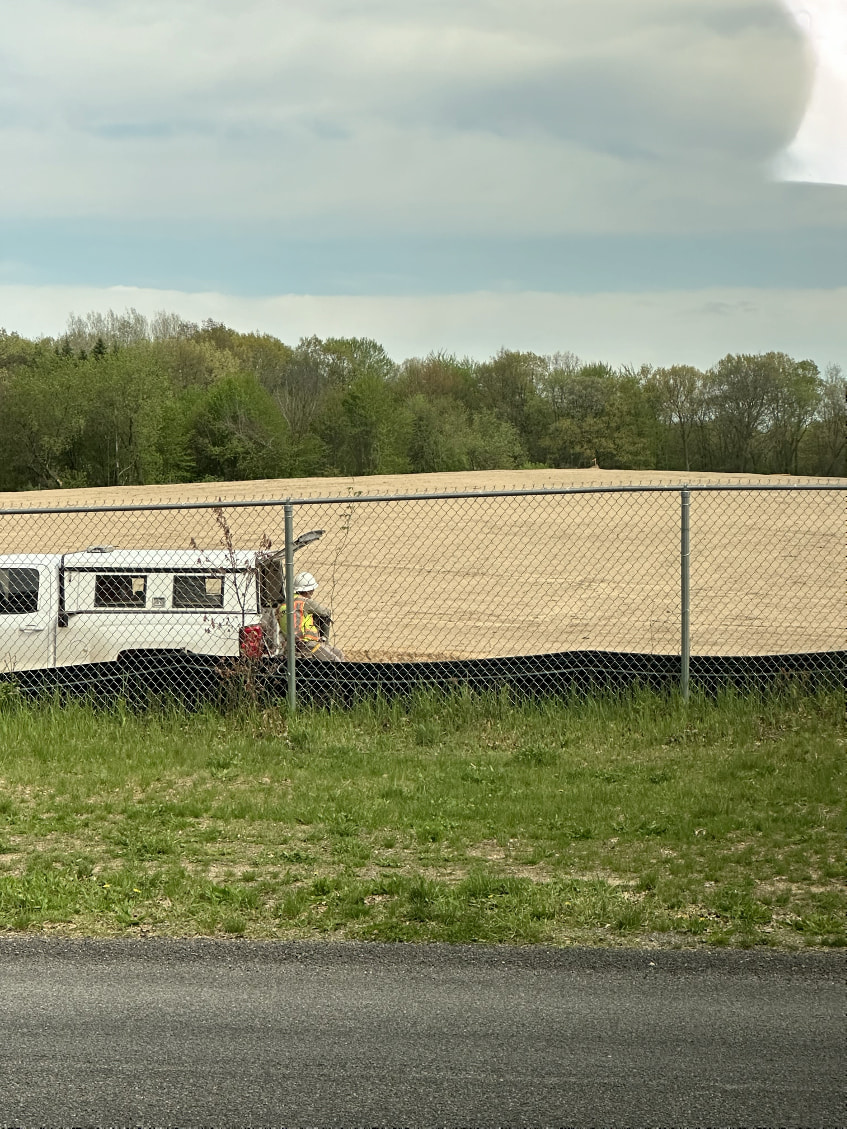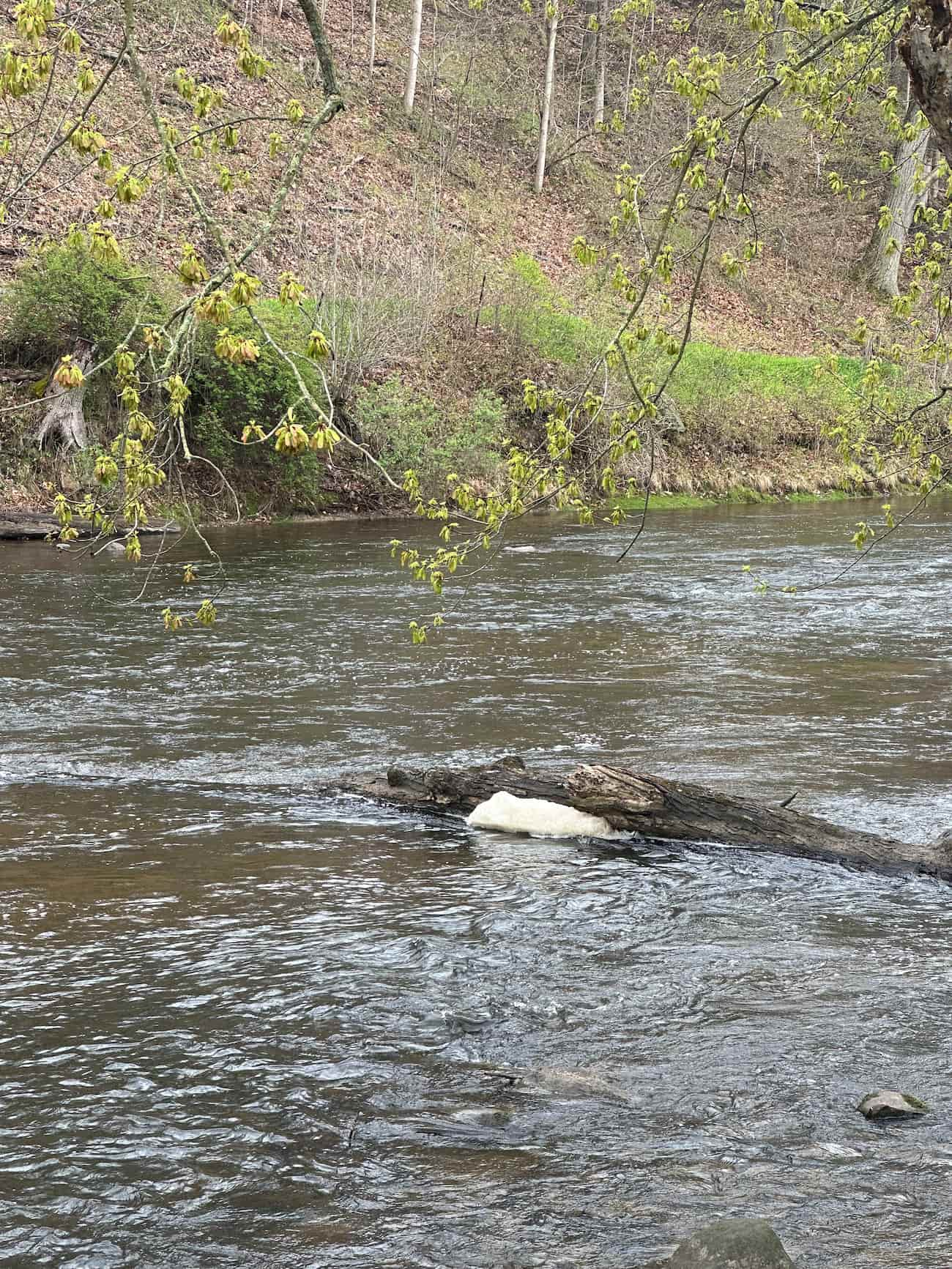
Colleen Linn: Exploring how groundwater contamination affects state-citizen relationships
Ph.D. candidate Colleen Linn spent three months conducting ethnographic fieldwork in areas of Michigan impacted by PFAS contamination. PFAS refers to a manmade class of chemicals used in a variety of industrial and manufacturing purposes since the 1930s. While most U.S. states and locations worldwide are likely impacted by the chemical class, knowledge and attention towards them are shaped by environmental politics at the local, state and national level.

Michigan’s approach to tackling its PFAS contamination allowed for an interesting opportunity to understand how groundwater contamination interacts with local politics, including in different PFAS contamination scenarios. Colleen spent most of her time this summer in Rockford and Grayling where PFAS was caused by industrial dumping by the town’s main company, Wolverine Worldwide, in the former and through military use of aqueous firefighting foam at Camp Grayling in the latter. In both, PFAS presence has critically affected residential well water use and has raised concerns about the health of local surface water resources that many residents live next to and recreate within.
Kicking off the research, Colleen met up with local activists by attending Michigan PFAS Action Response Team (MPART) and Restoration Advisory Board meetings. These conversations acquainted her with how residents helped unearth the depth of damage natural resources incurred as PFAS seeped into the ground and migrated into wells used for drinking water. These advocates acted as intermediaries between representatives of the state and impacted residents, some of them adversely affected themselves.
Many advocates are career professionals, lifelong environmental advocates or at/near retirement age. Colleen sought to understand how they utilized their expertise and professional connections to communicate the severity of the issue, which in the case of Rockford, helped launch the initial investigations into statewide public water testing for PFAS. These advocates enacted temporally gained knowledge and deep social connections to drive action forward on government and polluter action on PFAS contamination.

Beyond understanding the sociopolitics of groundwater contamination, Colleen also talked with well water users who received notice of PFAS detections. She did this through neighborhood door-knocking and identifying where to go through Michigan's Environment, Great Lakes, and Energy (EGLE) online resources. Here, she sought to understand how PFAS impacts residents thinking about their household water and how state-supplied filters have altered the dynamics of water use. While most well users took advantage of state-supplied water filters, some did not. Those who did comment on the uncertainty that came with only implementing a water filter in the kitchen, whereas water use occurs throughout the household. This included outdoor areas, where rural residents used water for vegetable gardens and giving water to animals.
Other residential frustrations referred to the slow nature of acquainting themselves with an altered environment. One instance was the slow flow of water out of the reverse osmosis filter, prompting some to supplement their supply with purchased bottled or jugged water. Moving from the household to the community level, frustrations emerged from the slow process of multi-agency coordination to enact long-term household solutions and movement on environmental remediation.
Next, Colleen will be digging into the data to further understand how governance response to environmental pollution is perceived by households and communities, including what meaningful progress means for those impacted.